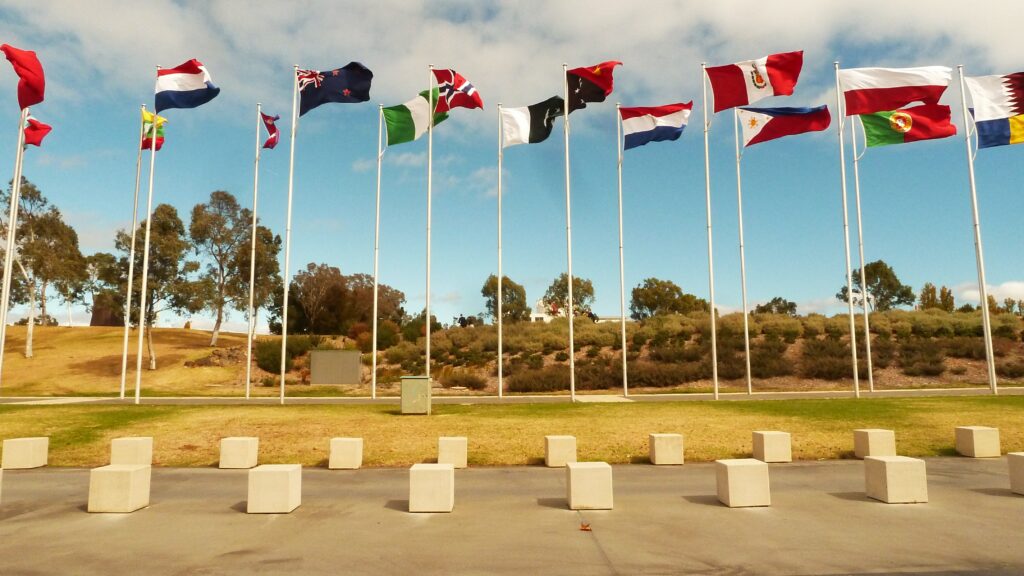Neste vídeo do canal THE MODELER, é abordada a questão do CÉREBRO BILÍNGUE. Falar dois ou mais idiomas torna você mais inteligente? Ser capaz de falar em dois ou mais idiomas em vez de apenas um, tem benefícios práticos em um mundo cada vez mais globalizado. O multilinguismo demonstrou ter muitas vantagens psicológicas e sociais que podem ir desde algo simples como assistir a filmes sem legendas até ter menos problemas para viajar e conseguir um emprego ou uma oportunidade de negócio, especialmente em áreas turísticas.
| Audio | |
|---|---|
Normal | Slow |
| English Transcript | Tradução |
| The bilingual brain. | O cérebro bilíngue. |
| People have very different opinions on what bilingualism really is. | As pessoas têm opiniões muito diferentes sobre o que realmente é o bilinguismo. |
| For some, it means speaking two languages fluently and with little to no effort. | Para alguns, significa falar duas línguas fluentemente e com pouco ou nenhum esforço. |
| Others only consider a person bilingual if he has perfect pronunciation in both languages, and makes very few grammatical errors while talking. | Outros só consideram uma pessoa bilíngue se ela tiver uma pronúncia perfeita nos dois idiomas e cometer pouquíssimos erros gramaticais ao falar. |
| The truth is that, even with a bad accent and making some mistakes, being able to speak in two or more languages, rather than only one, has practical benefits in an increasingly globalized world. | A verdade é que, mesmo com um sotaque ruim e cometendo alguns erros, poder falar em dois ou mais idiomas, em vez de apenas um, traz benefícios práticos em um mundo cada vez mais globalizado. |
| Multilingualism has been shown to have many psychological and social advantages, that can go from something simple as watching movies with no subtitles, to having less problems traveling, and even getting a job or business opportunity, especially in tourist areas. | O multilinguismo demonstrou ter muitas vantagens psicológicas e sociais, que podem ir desde algo simples como assistir a filmes sem legendas, até ter menos problemas para viajar e até conseguir um emprego ou oportunidade de negócios, especialmente em áreas turísticas. |
| It is considered to be two types of bilingualism: compound bilingualism, also called additive bilingualism. | São considerados dois tipos de bilinguismo: o bilinguismo composto, também chamado de bilinguismo aditivo. |
| It happens, for example, when a child is raised by bilingual parents and both languages are used at home. | Isso acontece, por exemplo, quando uma criança é criada por pais bilíngues e ambas as línguas são usadas em casa. |
| The child grows learning the two language simultaneously in the same environment. | A criança cresce aprendendo as duas línguas simultaneamente no mesmo ambiente. |
| With this type of bilingualism, the person does not see the two languages as separate and it is common to hear such people using words of different languages in the same sentence, or using a word of a different language from the one they're talking, to better express themselves. | Com esse tipo de bilinguismo, a pessoa não vê as duas línguas como separadas e é comum ouvir essas pessoas usando palavras de idiomas diferentes na mesma frase, ou usando uma palavra de um idioma diferente do que estão falando, para melhor se expressar. |
| The second type is coordinate bilingualism, also called subtractive bilingualism. | O segundo tipo é o bilinguismo coordenado, também chamado de bilinguismo subtrativo. |
| In this type the person perceives the two languages as separate, because he learns them separately and in different environments in context. | Nesse tipo a pessoa percebe as duas línguas como separadas, pois as aprende separadamente e em ambientes diferentes em contexto. |
| I am a living example of coordinated bilingualism. | Sou um exemplo vivo de bilinguismo coordenado. |
| I'm currently studying in Russian and most of the times I only talk Russian in the college environment and with people who only talk that language. | Atualmente estou estudando russo e na maioria das vezes só falo russo no ambiente universitário e com pessoas que só falam esse idioma. |
| I use the language specifically for those contexts, but for friends and family I usually talk in Portuguese, which is my native language, the language related to my home environment. | Eu uso a língua especificamente para esses contextos, mas para amigos e familiares eu costumo falar em português, que é minha língua nativa, a língua relacionada ao meu ambiente doméstico. |
| I see these two languages as separate since I learned and use them in completely different environments. | Vejo essas duas linguagens como separadas desde que as aprendi e as uso em ambientes completamente diferentes. |
| Only a few countries in the world, including the U.S., England and Australia, are officially monolingual, but even in these countries there is a considerable percentage of people who speak and understand more than one language. | Apenas alguns países do mundo, incluindo EUA, Inglaterra e Austrália, são oficialmente monolíngues, mas mesmo nesses países há uma porcentagem considerável de pessoas que falam e entendem mais de um idioma. |
| Researchers suggest that bilingualism can slow the advance of age-related mental issues, such as dementia and Alzheimer's by up to four years and that in bilingual adults, the brain tissue called gray matter, is denser compared with monolingual levels. | Os pesquisadores sugerem que o bilinguismo pode retardar o avanço de problemas mentais relacionados à idade, como demência e Alzheimer em até quatro anos e que em adultos bilíngues, o tecido cerebral chamado massa cinzenta é mais denso em comparação com os níveis monolíngues. |
| Although speaking more than one language does not necessarily make you a more intelligent person, it helps stimulate and increase brain connections. | Embora falar mais de um idioma não necessariamente faça de você uma pessoa mais inteligente, isso ajuda a estimular e aumentar as conexões cerebrais. |
| Learning a new language is like an exercise to the brain that will improve your cognitive skills, and even if you grew up in the monolingual environment, it is never too late to start learning a different language. | Aprender um novo idioma é como um exercício para o cérebro que melhorará suas habilidades cognitivas e, mesmo que você tenha crescido em um ambiente monolíngue, nunca é tarde demais para começar a aprender um idioma diferente. |
Contagem de palavras
A tabela abaixo exibe as palavras encontradas neste vídeo, bem como o número de vezes em que aparecem.
Veja também: Para que serve esta tabela?
| Freq. | Palavra | Freq. | Palavra | Freq. | Palavra |
|---|---|---|---|---|---|
| 22 | the | 18 | and | 17 | in |
| 12 | a | 11 | to | 11 | is |
| 10 | language | 9 | bilingualism | 8 | of |
| 8 | languages | 7 | two | 7 | I |
| 6 | with | 6 | that | 6 | it |
| 6 | different | 5 | only | 5 | as |
| 4 | person | 4 | people | 4 | one |
| 4 | more | 4 | for | 4 | even |
| 4 | environment | 4 | brain | 4 | bilingual |
| 3 | type | 3 | than | 3 | talk |
| 3 | separate | 3 | or | 3 | monolingual |
| 3 | learning | 3 | has | 3 | called |
| 3 | are | 2 | you | 2 | world |
| 2 | who | 2 | very | 2 | using |
| 2 | use | 2 | up | 2 | this |
| 2 | these | 2 | them | 2 | talking |
| 2 | such | 2 | speaking | 2 | speak |
| 2 | some | 2 | see | 2 | same |
| 2 | russian | 2 | related | 2 | not |
| 2 | no | 2 | my | 2 | if |
| 2 | home | 2 | he | 2 | have |
| 2 | from | 2 | few | 2 | example |
| 2 | environments | 2 | does | 2 | countries |
| 2 | child | 2 | can | 2 | by |
| 2 | but | 2 | both | 2 | an |
| 2 | am | 2 | also | 1 | your |
| 1 | years | 1 | words | 1 | word |
| 1 | will | 1 | while | 1 | which |
| 1 | when | 1 | what | 1 | watching |
| 1 | usually | 1 | used | 1 | understand |
| 1 | u | 1 | types | 1 | truth |
| 1 | traveling | 1 | tourist | 1 | too |
| 1 | tissue | 1 | times | 1 | those |
| 1 | they | 1 | there | 1 | themselves |
| 1 | suggest | 1 | subtractive | 1 | subtitles |
| 1 | studying | 1 | stimulate | 1 | start |
| 1 | specifically | 1 | something | 1 | social |
| 1 | slow | 1 | skills | 1 | since |
| 1 | simultaneously | 1 | simple | 1 | shown |
| 1 | separately | 1 | sentence | 1 | second |
| 1 | s | 1 | researchers | 1 | really |
| 1 | rather | 1 | raised | 1 | psychological |
| 1 | pronunciation | 1 | problems | 1 | practical |
| 1 | portuguese | 1 | perfect | 1 | percentage |
| 1 | perceives | 1 | parents | 1 | others |
| 1 | opportunity | 1 | opinions | 1 | on |
| 1 | officially | 1 | new | 1 | never |
| 1 | necessarily | 1 | native | 1 | multilingualism |
| 1 | movies | 1 | most | 1 | mistakes |
| 1 | mental | 1 | means | 1 | matter |
| 1 | many | 1 | making | 1 | makes |
| 1 | make | 1 | living | 1 | little |
| 1 | like | 1 | levels | 1 | less |
| 1 | learns | 1 | learned | 1 | late |
| 1 | job | 1 | issues | 1 | intelligent |
| 1 | increasingly | 1 | increase | 1 | including |
| 1 | improve | 1 | helps | 1 | hear |
| 1 | having | 1 | happens | 1 | grows |
| 1 | grew | 1 | gray | 1 | grammatical |
| 1 | go | 1 | globalized | 1 | getting |
| 1 | friends | 1 | four | 1 | fluently |
| 1 | family | 1 | express | 1 | exercise |
| 1 | especially | 1 | errors | 1 | england |
| 1 | effort | 1 | denser | 1 | dementia |
| 1 | currently | 1 | coordinated | 1 | coordinate |
| 1 | contexts | 1 | context | 1 | considered |
| 1 | considerable | 1 | consider | 1 | connections |
| 1 | compound | 1 | completely | 1 | compared |
| 1 | common | 1 | college | 1 | cognitive |
| 1 | business | 1 | better | 1 | benefits |
| 1 | being | 1 | been | 1 | because |
| 1 | be | 1 | bad | 1 | australia |
| 1 | at | 1 | areas | 1 | alzheimer's |
| 1 | although | 1 | age | 1 | advantages |
| 1 | advance | 1 | adults | 1 | additive |
| 1 | accent | 1 | able |











Excelente